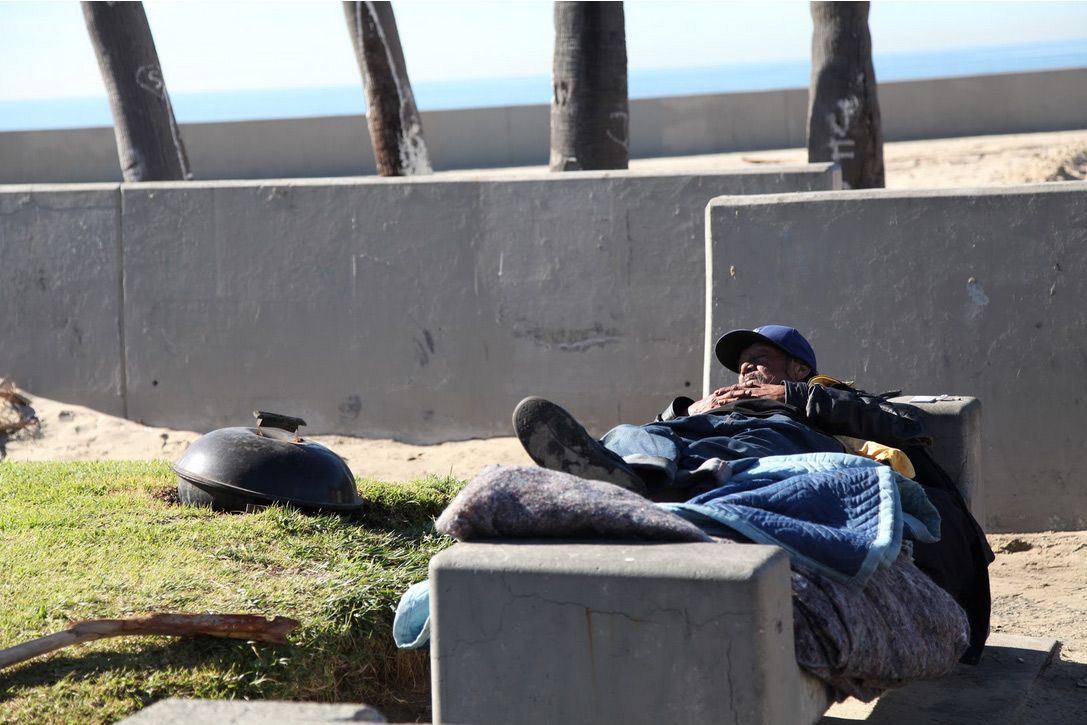Nature of the Problem
Homelessness is one of the greatest humanitarian crises of our time. Individuals facing homelessness suffer a disproportionate burden of illness from living in the most severe conditions of poverty. An increase in the number of unsheltered individuals drove the recent national increase in homelessness overall. Between 2018 and 2019, the number of unsheltered individuals in California rose by 21 percent—an increase of roughly 18,000 people.1
Chronic homelessness is a term used to describe a situation where a person has experienced homelessness for at least one year, or repeatedly over the course of three years, while struggling with one or more disabling conditions such as serious mental illness, substance use disorder, or physical disability. Viewed as a medical syndrome, homelessness carries an average life expectancy of 42 to 52 years.2 The average age of death for people who are experiencing homelessness in Los Angeles County is 48 for women and 51 for men.3
Homelessness is the single most important risk factor that impacts the health and well-being of unsheltered individuals. The first comprehensive analysis of mortality among people experiencing homelessness in Los Angeles County found that the overall mortality rate has steadily increased over the past six years.4
The enormous costs of hospital and emergency services (911, ambulance, emergency department) can be reduced with appropriate care and resources to address the social, medical and housing needs of homeless individuals., The provision of social and primary care not only makes financial sense, it’s essential for addressing the complex needs of a traditionally marginalized population suffering from “simultaneous medical, mental health and substance use problems”.7
At Venice Family Clinic, our mission is to provide quality primary health care to people in need. We have long been aware that unsheltered individuals are dying at a very young age and that their burden of illness is tremendously high. If one of the foundations of health care is to treat the sickest first, then our challenge is to do everything we can to locate these unsheltered individuals5,6 meet their survival needs, and deliver quality health care to each and every person.
